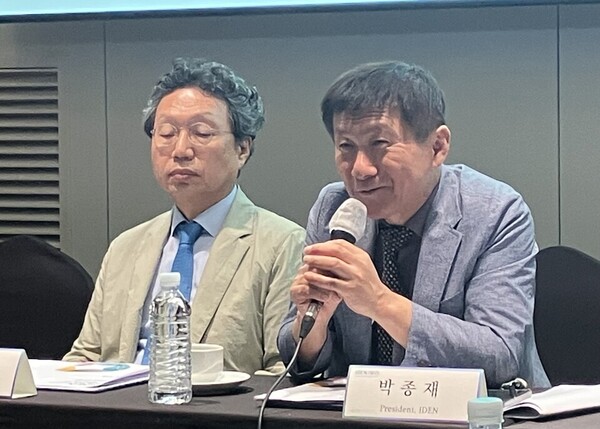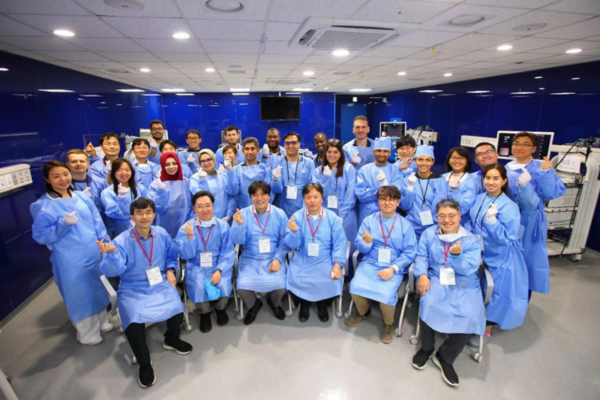Korea is emerging as a global center of excellence in the field of digestive endoscopy.
The country is playing a pivotal role in fostering the next generation of experts from around the world, leveraging its top-notch technology and educational expertise to attract the attention of global experts.

On Tuesday, the Korean Society of Gastrointestinal Endoscopy (KSGE) held a news conference to present its achievements by hosting the IDEN (International Digestive Endoscopy Network) 2025.
IDEN is an international academic network established by the KSGE. Since its official establishment as an international society in 2019, it has been sharing the latest endoscopic technologies and clinical knowledge through various academic programs every year. This year's meeting was held at the Grand Walkerhill in Gwangjin-gu, Seoul, from June 12 to 14.
As it continues to expand international collaboration in the field of digestive endoscopy, the interest in IDEN from experts worldwide is growing. As of July, more than 3,500 individual and academic members from 64 countries have registered. This year's congress was attended by more than 900 experts from 34 countries.
“It was a meaningful event that provided opportunities for participants to strengthen their capabilities by understanding the latest technologies, improving their clinical skills, actively networking with global experts, and exploring the direction of development in the field of gastrointestinal endoscopy together, beyond just knowledge transfer,” KSGE President Park Jong-jae said.
The KSGE is dedicated to training young endoscopists worldwide. The International Young Endoscopist Award (IYEA) program, established in 2014, aims to enhance the capabilities of young physicians in the field of gastrointestinal endoscopy and promote exchange.
“It is a ‘mentor-mentee’ program that invites young doctors from underdeveloped regions with a certain amount of support and connects them with professors from 28 major university hospitals in Korea for two weeks of training, allowing them to acquire the latest knowledge and skills,” said Cheon Young-koog, KSGE’s director of the public relations committee.
"The response from the participants has been great. We haven't promoted the program much, but young doctors from all over the world are actively participating through word of mouth,” Cheon said. "There are many requests to participate again, but we don't accept them because we want to provide opportunities to a wide range of people.

This year alone, the IYEA program has hosted 72 young doctors from 23 countries. Since its inception in 2014, the program has provided 362 young doctors from 33 countries with the opportunity to acquire in-country GI endoscopy skills.
Recently, the program has also been active in benchmarking the IYEA program overseas.
Japan attempted a similar program 10 years ago, but it was unsuccessful. The society's intention to train young doctors is essential. Still, the active support of each university hospital as a training center for digestive endoscopy is also essential,” Cheon said. "The Japanese society does not have the support of university professors like in Korea, and it envied and benchmarked the Korean situation (where professors are actively involved).”
KSGE President Park said, “We will continue to promote international cooperation and education to advance the field of digestive endoscopy. We will strengthen exchanges with medical professionals worldwide and contribute to improving the quality of patient care.”

